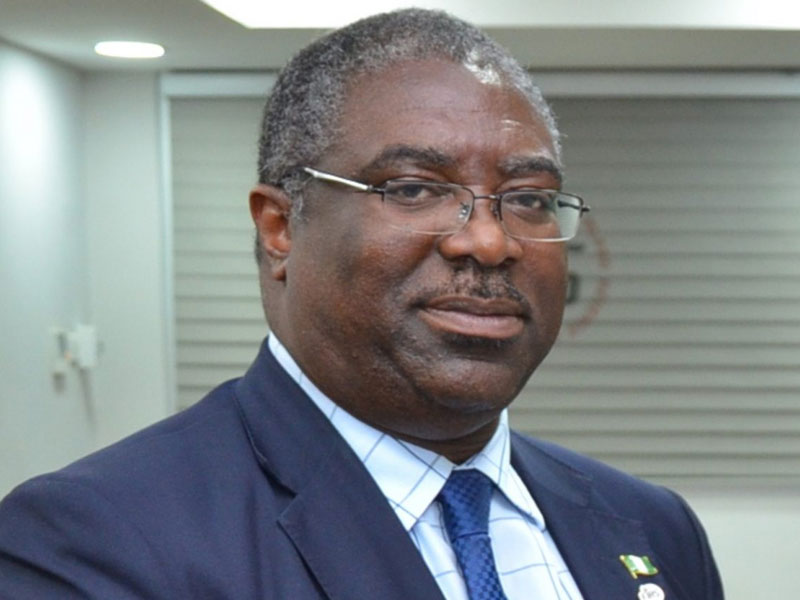Executive Chairman of the Federal Inland Revenue Service, FIRS, Mr. Tunde Fowler, has attributed the shortfalls and variances between budgeted revenue collections and actual collections since the inception of President Muhammadu Buhari’s administration to recession, fall in oil prices, and the agency’s lack of control over oil revenue.
On August 8, the Presidency through the Chief of Staff to the President, Mallam Abba Kyari, queried Fowler over the variances and directed him to reply by August 19.
The query read in part: “We observed significant variances between the budgeted collections and actual collections for the period 2015 to 2018. Accordingly, you are kindly invited to submit a comprehensive variance analysis, explaining the reasons for the variances between the budgeted and actual collections for each main tax item for each of the years 2015 to 2018.
“Furthermore, we observed that the actual collections for the period 2015 to 2017 were significantly worse than what was collected between 2012 and 2014. Accordingly, you are kindly invited to explain the reasons for the poor collections. You are kindly invited to respond by August 19, 2019.”
Replying the query, Fowler said FIRS did very well in collection of non-oil revenue where it has control lamenting that oil revenue collection figures were subject to more external forces.
Nevertheless, he noted that ”non-oil-revenue collection grew by N1,304.20 trillion or 21 per cent within the period 2016 to 2018,” and that ”total budget collection figure during 2012 to 2014 stood at N12,190.52 trillion compared to N16,771.78 trillion for the period 2016 to 2018, which represents an increase of 37.58 per cent.”
Besides, he said going by all non-oil tax types, there had been an increase in what was generated in 2016 to 2018 compared to what was generated in 2012 to 2014
In his 12-paragraph response to Kyari titled; ”Re: Budgeted FIRS Collection and Actual Collection” dated August 19, 2019, Fowler submitted what he described as ”a comprehensive variance analysis between budgeted and actual collections for each main tax item for the period 2012-2018” as requested.
He said: ”The variance in the budgeted and actual revenue collection performance of the service for the period 2016 to 2018 was mainly attributed to:
”The low inflow of oil revenues for the period especially Petroleum Profit Tax, PPT, was due to fall in price of crude oil and reduction of crude oil production…The price of crude oil fell from an average of $113.72, $110.98 and $100.40 per barrel in 2012, 2013 and 2014 to $52.65, $43.80 and $54.08 per barrel in 2015, 2016 and 2017. There was also reduction in crude oil production from 2.31mbpd, 2.18mbpd and 2.20mbpd in 2012, 2013 and 2014 to 2.12mbpd, 1.81mbpd and 1.88mbpd in 2015, 2016 and 2017 respectively.
”The Nigerian economy also went into recession in the second quarter of 2016, which slowed down the general economic activities. Tax revenue collection, CIT and VAT, being a function of economic activities were negatively affected but actual collection of the above taxes were still higher in 2016 to 2018 than in 2012 to 2014. During the years 2012, 2013 and 2014, GDP grew by 4.3 per cent, 5.4 per cent and 6.3 per cent while in 2015, 2016 and 2017 there was a decline in growth to 2.7 percent, -1.6 per cent and 1.9 per cent respectively. The tax revenue grew as the economy recovered in the second quarter of 2017.”
He continued: ”It is worthy of note that strategies and initiatives adopted in collection of VAT during the period 2015 to 2017 led approximately 40 per cent increase over 2012 to 2014 collections. In 2014 the VAT collected was N802 billion, compared to the N1.1 trillion in 2018. This increase is attributable to various initiatives such as ICT innovations, continuous taxpayer education, taxpayer enlightenment, etc, embarked upon by the Service.
”Furthermore, it is pertinent to note that when this administration came on board in August 2015, the target for the two major non-oil taxes were increased by 52 per cent for VAT and 45 per cent for CIT. Notwithstanding the increase, FIRS has in line with the Federal Government’s revenue base diversification strategy grown the non-oil tax collection by over N1.304 trillion, 21 per cent, when the total non-oil tax collection for 2016 to 2018 is compared to that of 2012 to 2014.”
Fowler also gave a breakdown of the CIT, Gas Income, Capital Gains tax, Stamp duty, VAT (non-import and import), Education tax, personal income tax and NITDEF, which recorded higher figures in 2016 to 2018 compared to 2012 to 2014.
Said Fowler on Kyari’s query: ”Your letter stated that actual collections for a three-year period were significantly worse than what was collected between 2012 and 2014. Total actual collection for the said period was N14,527.85 trillion, while total actual collection between 2016 to 2018 was N12,656.30 trillion.
”The highlight of these collection figures was that during the period 2012 to 2014, out of the N14,527.85 trillion, oil revenue accounted for N8,321.64 trillion or 57.28 per cent while non-oil accounted for N6,206.22 trillion or 42.72 per cent and during the later period of 2016 to 2016 out of the N12,656.30 trillion, oil revenue accounted for N5,145.87 trillion or 40.65 per cent and non-oil revenue accounted for N7,510.42 trillion or 59.35 per cent.
FIRS management has control of non-oil revenue collection figures while oil revenue collection figures are subject to more external forces.”

